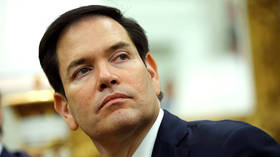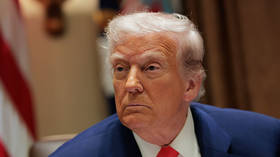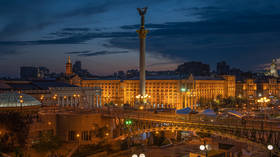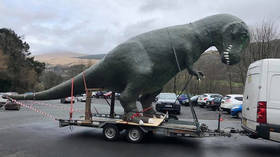‘Clever trade move’: Residents in US city fear pollution spike after China bans waste imports
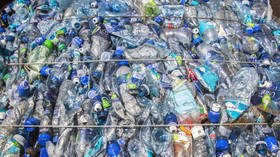
Beijing’s move to crack down on waste imports may be part of the ongoing trade war with Washington, RT has been told. Ruptly met with US locals who fear the situation will decimate the environment.
China, the largest buyer of recyclables from the US, banned 24 types of solid waste from being imported and placed tougher restrictions on the ones it continues to accept.
The move left the recycling industry and authorities in a number of US cities struggling with the disposal of plastic, paper and glass trash.
As the result, the trash, instead of being shipped to China, is now taken to landfills or burnt. Locals say it creates pollution, negatively impacting the health of residents.
“Communities around trash incinerators have experienced elevated levels of certain cancers,” environmental activist Mike Ewall told Ruptly video agency in Chester, outside Philadelphia, where a large incinerator is located. It burns around 200 tons of recyclable materials every day.
The dioxins in the blood of incinerator workers are even known to be higher than normal. So you have a lot of community problems with respiratory problems and more serious diseases.
Ewall noted that burning trash releases “28 times more dioxin pollution” than burning coal, emitting “the most toxic chemicals known to science,” like mercury and lead.
Also on rt.com US-China trade war: New tit-for-tat tariffs targeting $260bn in bilateral trade go into effectThe residents complain that the incinerator affects house prices as well. “It destroyed the sense of community, because people that were here moved. You cannot sell the house. It has destroyed the foundations,” local activist Zulene Mayfield told Ruptly.
The incinerator operator, Covanta, argued that burning the trash is a better option than storing it in landfills, saying that the emissions from its facilities “consistently fall below established limits.”
New regulations introduced by Beijing became unattainable for many in the US. It is “virtually impossible to meet the stringent contamination standards established in China,” a spokesperson for the city of Philadelphia, Pennsylvania, explained, adding that the increased cost of recycling made a dent in the city’s budget.
“I have to take off my hat to China: it’s a very clever trade move,” Jeffrey Tucker, the editorial director at the American Institute for Economic Research, told RT, adding that Beijing “would never admit that this is part of the trade war.”
It’s a way of putting a huge tariff or a blockade on the worst of American exports to China. If it is a tactic, it’s a brilliant one.
The US and China have been locked in a trade war since President Donald Trump imposed tariffs on Chinese goods. He argued that Beijing was cheating its way in trade and taking unfair advantage of the US economy. China vowed to retaliate and placed tariffs on certain US goods in return.
Think your friends would be interested? Share this story!




